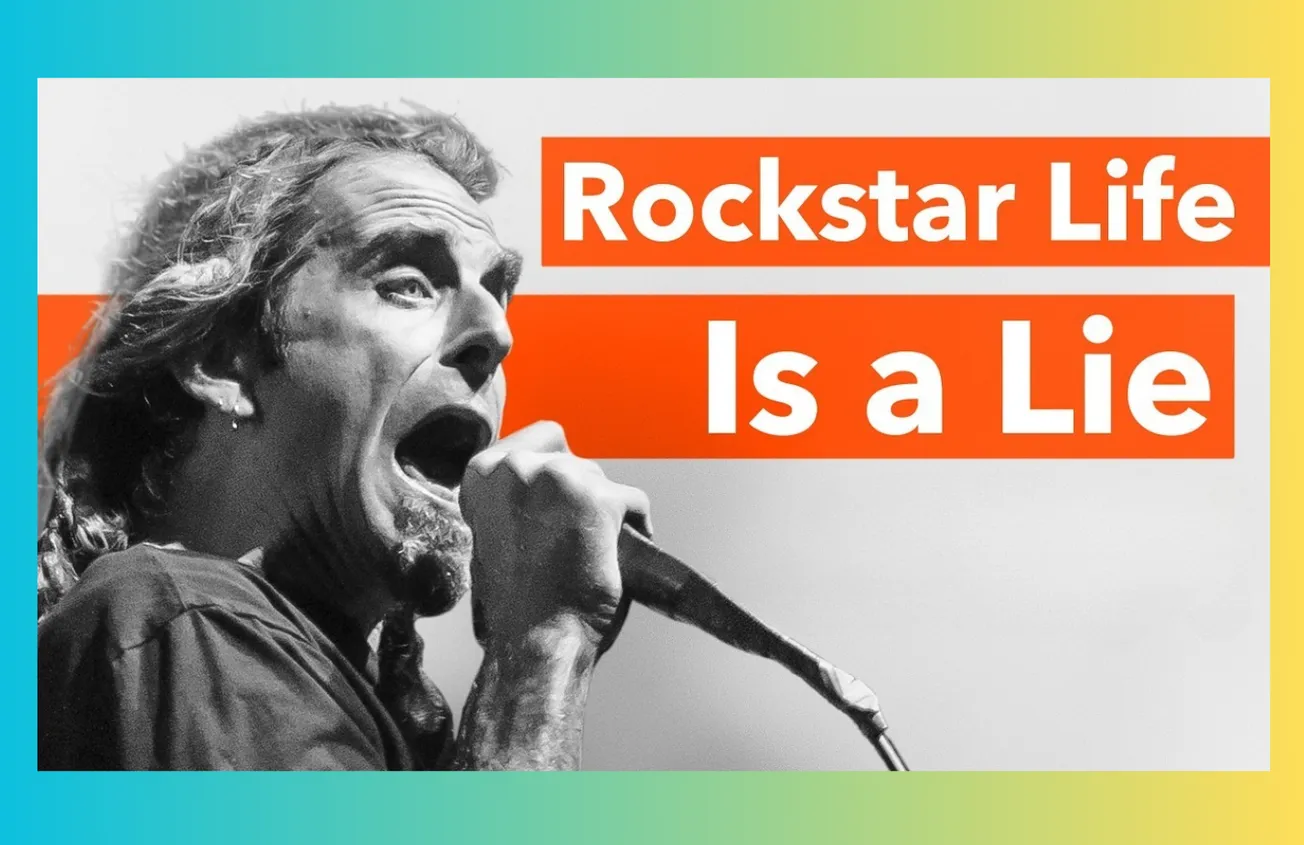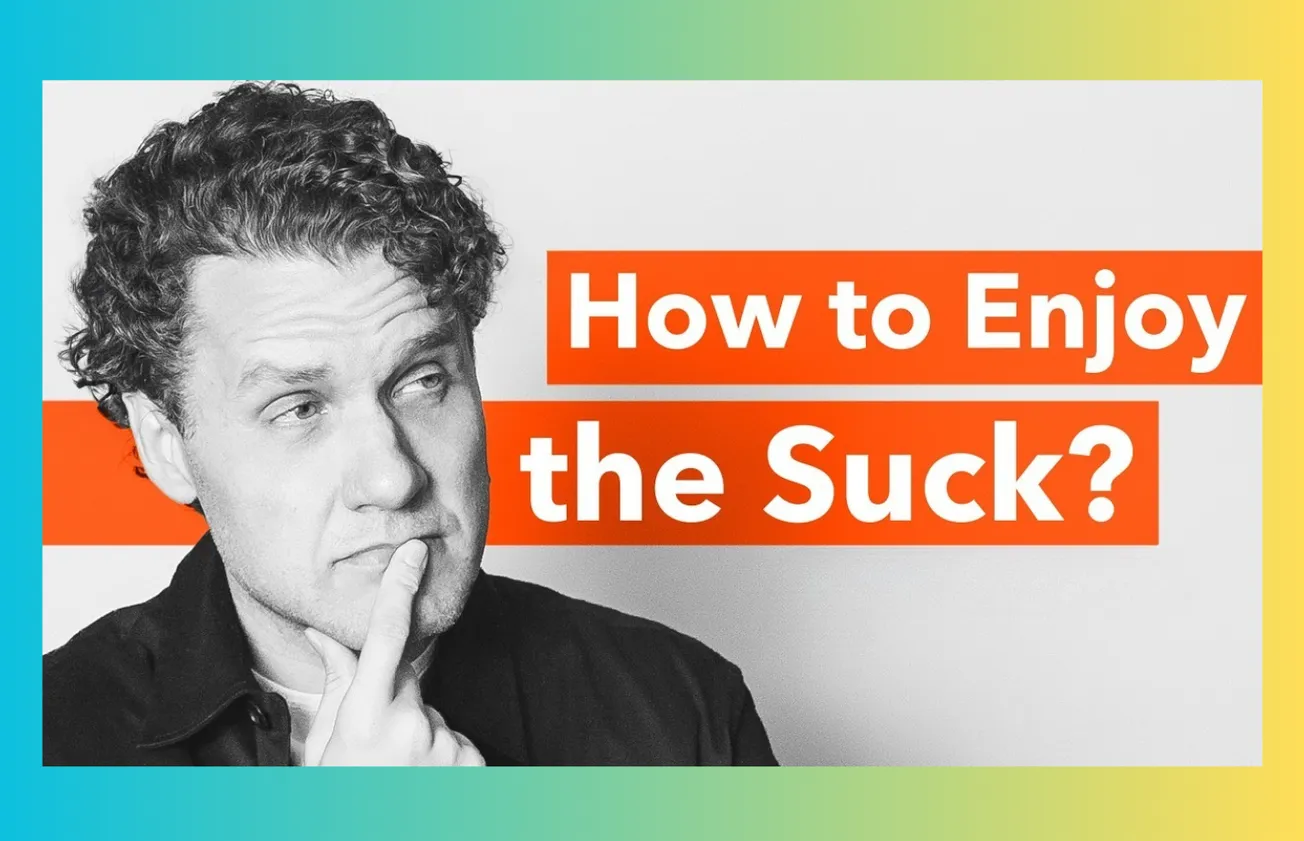Table of Contents
Meaning isn’t found in success—it’s discovered in silence, suffering, love, and boredom. Arthur Brooks explores how to live fully, not just loudly.
Key Takeaways
- Chasing admiration is evolutionarily wired—but ultimately hollow.
- Meaning is coherence, purpose, and significance—not pleasure or acclaim.
- Boredom is essential; it unlocks your brain’s right hemisphere and coherence.
- You must subtract overstimulation before you can ask the big questions.
- Structured leisure can be a deep source of purpose for people with unfulfilling jobs.
- Spirituality and transcendence combat the emptiness of a screen-saturated life.
- Many political or lifestyle movements are substitute religions—without the divine.
- Romantic love and deep community relationships are earthly anchors to the sacred.
- Meaning doesn’t come from answers—it emerges through lived, ineffable understanding.
Why Acclaim Never Satisfies and Meaning Always Matters
- Brooks and Manson share near-identical arcs—early glory as musicians, followed by burnout and eventual disillusionment. The audience rewards didn’t equal inner peace. They discovered that the adoration of crowds was fleeting and ultimately irrelevant to their deeper sense of purpose.
- Mark reflects, “I’d rather lose half the audience and do something exciting than bang the same drum for life.” That tension is the trade-off: meaning vs. acclaim. Doing what's popular often means abandoning what's true.
- Brooks warns: your identity can become a product. “You become a book with a person attached.” When you package yourself for applause, you risk detaching from authenticity.
- Glory appeals to our inner ape. As kin-based hierarchical creatures, we’re wired to seek social status—but it doesn’t nourish us. It satisfies the ego while starving the soul.
- Meaning sustains through hardship; acclaim dissolves under pressure. The crowd disperses when the lights go out—meaning stays.
- “Meaning is the only thing that will sustain you at the end of the day.”
How We’re Wired for Meaning—Not Just Survival
- Evolution gave us two brains in one: the limbic system craves pleasure and avoidance; the prefrontal cortex seeks higher order direction. The latter is where dreams, values, and morality live.
- Brooks calls the prefrontal cortex “an antenna to the divine.” It wants coherence, purpose, and significance—what he defines as the three pillars of meaning.
- Coherence: understanding the throughline of your life.
- Purpose: having goals that stretch beyond the self.
- Significance: knowing your life impacts others and is remembered.
- Dogs don’t wonder why they exist. Humans do. That’s not a glitch—it’s a signal. We’re built to seek meaning.
- “Enjoyment is pleasure plus memory plus people. That’s where meaning starts.” True meaning often begins with shared joy, then deepens through reflection.
- Brooks suggests our urge for meaning is what separates us not only from animals but also from machines. It's not just cognition—it’s conscience.
Why Boredom Is the Gateway to Purpose
- Boredom activates the brain’s right hemisphere—the region responsible for narrative, insight, and integration. It creates conditions for daydreaming, memory consolidation, and creative synthesis.
- Brooks cites Iain McGilchrist’s neuroscience: constant digital stimulation traps us in left-brain loops. TikTok = incoherence. “We think we’re feeding ourselves, but we’re just chewing dopamine gum.”
- “You need to be bored more.” Showers, silence, and walks without AirPods create the space where big ideas and deep understanding emerge. Most transformative thoughts arrive unannounced.
- Start small: a device-free first hour each morning. Exercise without audio. Let discomfort arise—it’s fertile ground. You’ll feel restless—then ideas arrive.
- The “default mode network” (DMN) kicks in during downtime. It generates reflection, insight, and creative sparks. It is the origin of that sudden idea in the shower.
- “Best ideas? They don’t come from effort. They come from emptiness.” And that emptiness must be designed into your day.
From Information Overload to Personal Coherence
- The modern world delivers quantity—not narrative. Shorts, feeds, and scrolls fragment the mind. What we consume becomes who we are—but scattered.
- Brooks: “You can’t build a coherent life story while consuming incoherent content.” Brains require throughlines. Context. Resolution.
- Reading a book or listening to a full-length lecture gives your brain what it craves: arc, structure, and resolution. These formats restore continuity.
- Before content, comes silence. Before meaning, comes boredom. That’s the sequence. Noise first must be cleared to build signal.
- Meaning requires attention. Attention requires boundaries. Discipline in consumption unlocks discernment in creation.
Can Work Feel Pointless and Still Lead to Meaning?
- Yes—if you reframe leisure as your primary source of growth. Work pays bills. Leisure builds you.
- Brooks invokes Josef Pieper’s classic Leisure: The Basis of Culture. The factory worker may not find purpose at work—but structured leisure can transform their life. Philosophy begins in free time.
- Read the Bible like a project. Take courses with goals. Watch full series of lectures—not clips. Build a leisure practice like a pro athlete builds training. Sacred seriousness is the key.
- “Take your leisure seriously. Never waste a minute.” Waste isn’t rest—it’s drift without direction.
- Meaning scales from micro-goals: read one page a day → finish the book → absorb a worldview. Small intentions ripple out into lifelong clarity.
- Even when your job is mundane, you can be mentally expansive. Growth isn’t limited by your job title—it’s enabled by how you use time outside it.
The Return to Faith: Why Transcendence Is Resurfacing
- Brooks observes an unexpected trend: a spike in Bible and religious text sales. Why? After decades of digital overstimulation, people crave depth. And answers no algorithm can give.
- He calls faith one of four pillars of a meaningful life. But not all spirituality is healthy. It can drift into fundamentalism, performance, or tribalism.
- Mature spirituality is grounded in love, not rules.
- It has contemplative practices like prayer or meditation.
- It avoids tribal purity tests and replaces them with humility.
- Faith isn’t about belief. It’s about relationship. “Understanding replaces answers.” We don’t need certainty—we need connection.
- You don’t have to believe everything. Sit in the back of the church. Just start. Begin not with doctrine—but presence.
- Transcendence can also come through nature, music, or service. The unifying factor? Feeling small and held simultaneously.
Romantic Love, Community, and Divine Echoes
- Brooks: “Romantic love is a simulacrum of divine love.” A good marriage models transcendence. It’s not about completion—it’s about surrender.
- The “two-key” metaphor: a sacred relationship only activates when both partners commit to something greater than themselves. Selflessness unlocks something higher.
- Mark reflects on feeling jealous of his parents’ church community. As he ages, he values the stability and selflessness he once rejected. In youth, we crave freedom. In wisdom, we seek grounding.
- Loneliness is rising, especially in older men. Faith groups offer a rare antidote—ritual, care, proximity, and shared moral vision.
- “Men without love, family, or community fall apart. They don’t just hurt—they collapse.” The body may survive—but the soul disintegrates.
- Community isn’t optional. It’s not sentimental—it’s structural. You don’t self-actualize alone.
Modern Substitutes for Meaning Are Failing Us
- Brooks warns of a surge in “secular religions”—activism, fitness tribes, hyperbranding, influencer identities. They offer identity without intimacy.
- They mimic religion: exclusive language, moral hierarchies, punishment rituals. But they lack one thing—love. No grace. No forgiveness.
- These surrogate religions spike anxiety, not peace. They promise clarity but deliver agitation. Their gods demand burnout.
- “If it has no love and no contemplative tradition, run the other direction.” Ask: what happens when you fail? That’s the test.
- Even political engagement, without grace or awe, becomes toxic. The dark triad (narcissism, Machiavellianism, psychopathy) is prevalent among extreme activists.
- “Don’t let someone convince you your family must be sacrificed for a cause. That’s not righteousness. That’s manipulation.”
Conclusion
You won’t find meaning in a scroll. You’ll find it when you pause, turn down the noise, and ask why you’re still hungry after everything.
Trade performance for presence. Meaning doesn’t come from more—it emerges when you finally sit with less.









